„Did you have a big culture shock?“
I follow my first impulse and say: „No, not at all. To be honest, it’s not very different from Germany here. But then again, I have also been to Bosnia a couple of times, so I’m used to it…“
„Okay, “she says, and the conversation moves on.
Just my thoughts do not. I linger on my own words – are those impressions I had in the last 30 days really nothing special? Is there nothing that surprises me about Bosnia and Herzegovina, that strikes me as weird or, simply, just different?
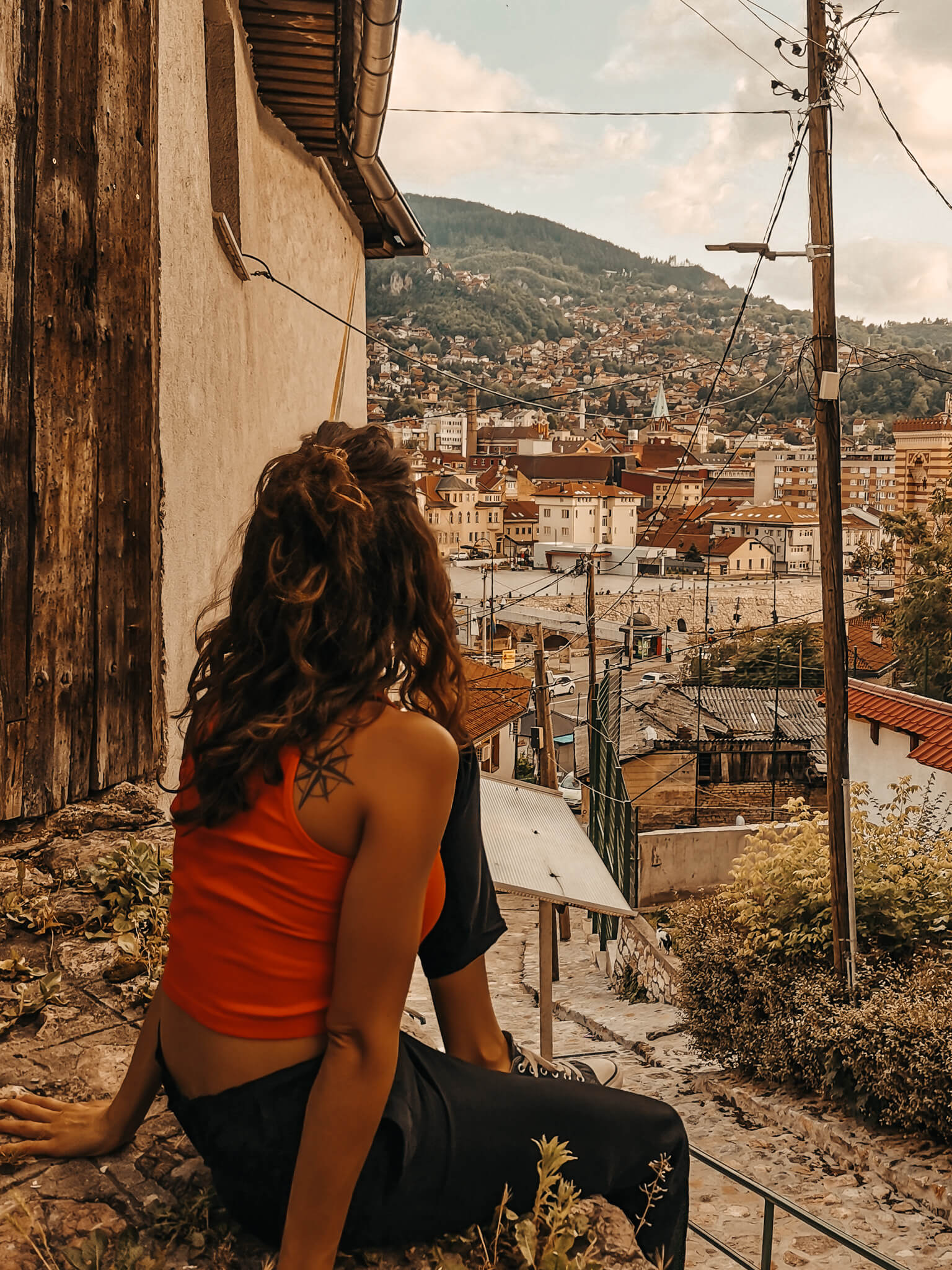
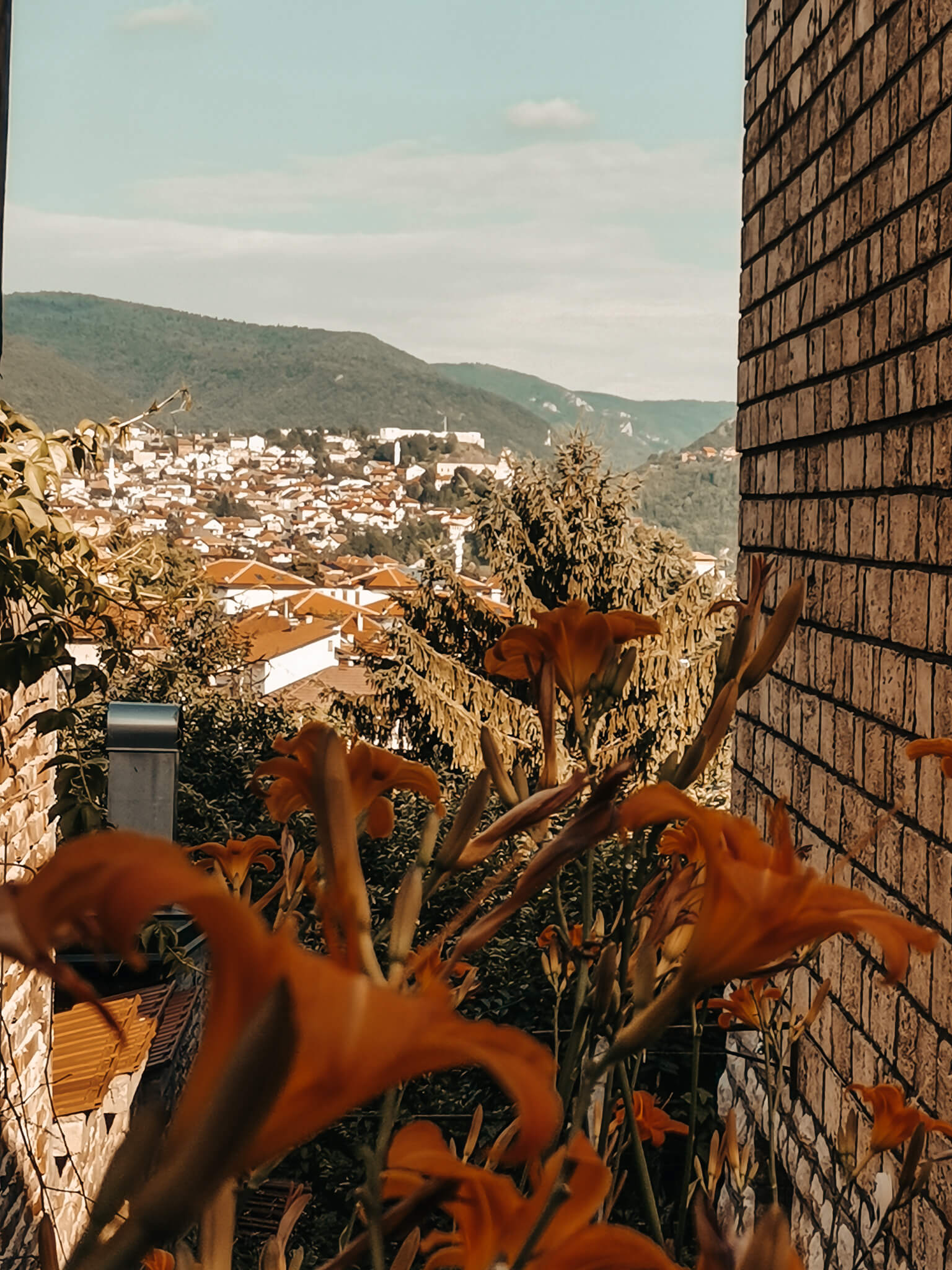
Sometimes, we sit at a café for hours, drinking strong coffee that is always served with a glass of water here, chatting away. It doesn’t matter if we order one drink or ten – we can stay as long as we want, nobody will give us a sign to pay up and leave.
We just sit, enjoy the now, the time together instead of rushing through yet another brunch and heading towards other obligations.
The first thing I noticed upon my arrival in Sarajevo was the noise. I had forgotten how loud this city is: Music from cafés, filling whole streets with Bosnian folklore singing, the traffic, the conversations – and a lot of laughter. Bosnians like to laugh just as much as they like spending time with family and friends.
But that’s not the only thing you feel when you arrive here. There’s a weird mix of melancholy and resignation in the air, covered up by humor and the scent of strong coffee. The lack of prospects is laughed away until another friend moves abroad. People look into the future pessimistically – understandably so – and at the same time enjoy the present as much as they can.
Maybe it’s the Southern mentality, perhaps it’s the history of war and uncertainty that made them so. They even have a word for it – ćejf are the little things that make life worth living, the small pleasures you need to be happy. Like a cup of coffee, a cold glass of wine, a cigarette, an afternoon in the sun, and a little chat with a friend – or a stranger that just hasn’t become a friend yet.
It’s so easy to make friends with Bosnians, the hospitality here doesn’t seem forced, feels so natural. People will happily invite you into their homes, offer you slippers (that is vital!), and food (even more important!).
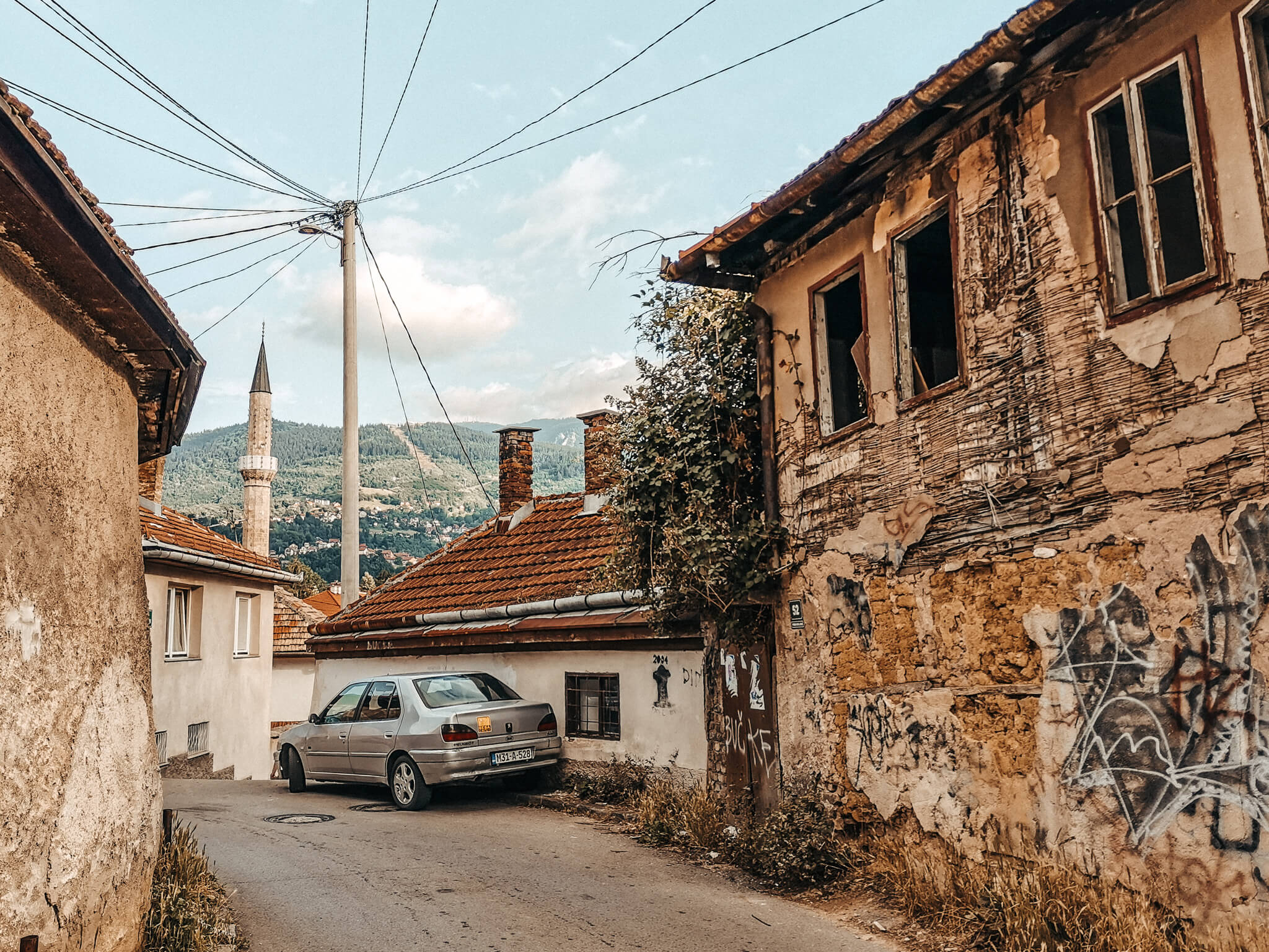
Yes, I feel good here, welcomed, not too much like the stranger, foreigner, an intruder. The truth is: I just didn’t like the word shock. It didn’t seem to fit the experiences I have made and still make in Sarajevo that are very different from life in Germany, Denmark, Czech Republic and especially South Africa.
I have never experienced a country that is mixed in so many ways, thanks to its history. Somewhere in between tradition and western cultures. Somewhere in between being close to your family and moving away for a better future, secularism and religion, past and future. The whole country breathes an atmosphere of change, of departure. There are modern buildings – steel and glass and flashy billboards right next to mosques and churches and houses that still bear the scars of a war that happened twenty-five years ago but still hovers over people’s lives like fog on a sunny day that just won’t go away.
There are also things, though, that are very foreign to me. The concept of linking ethnicity and religion, for example. Here it happens all the time. People will ask for your name or even which part of the country you come from – and infer from this if you are either Croatian, Serbian or Bosnian, Catholic, Orthodox or Muslim. The country is still basically torn into three parts. The politicians use those nationalist tendencies to follow their agenda – not making the country better necessarily.
Living in a place with youth employment of sixty percent and an average yearly income of 4.800 Euros makes me aware of my privileges. It makes me aware of my education, of the ease with which I can navigate the world thanks to my passport. It shows me that its mere luck where you are born, what opportunities you get in life, how free you are to shape your future the way you want.
I don’t like the stray dogs, the dirt, how nature is treated and then again – what are those bigger problems to you, when your small world revolves around feeding a family for 250 Euros a month, your kids have gone off to Germany or Sweden, your politicians couldn’t care less…
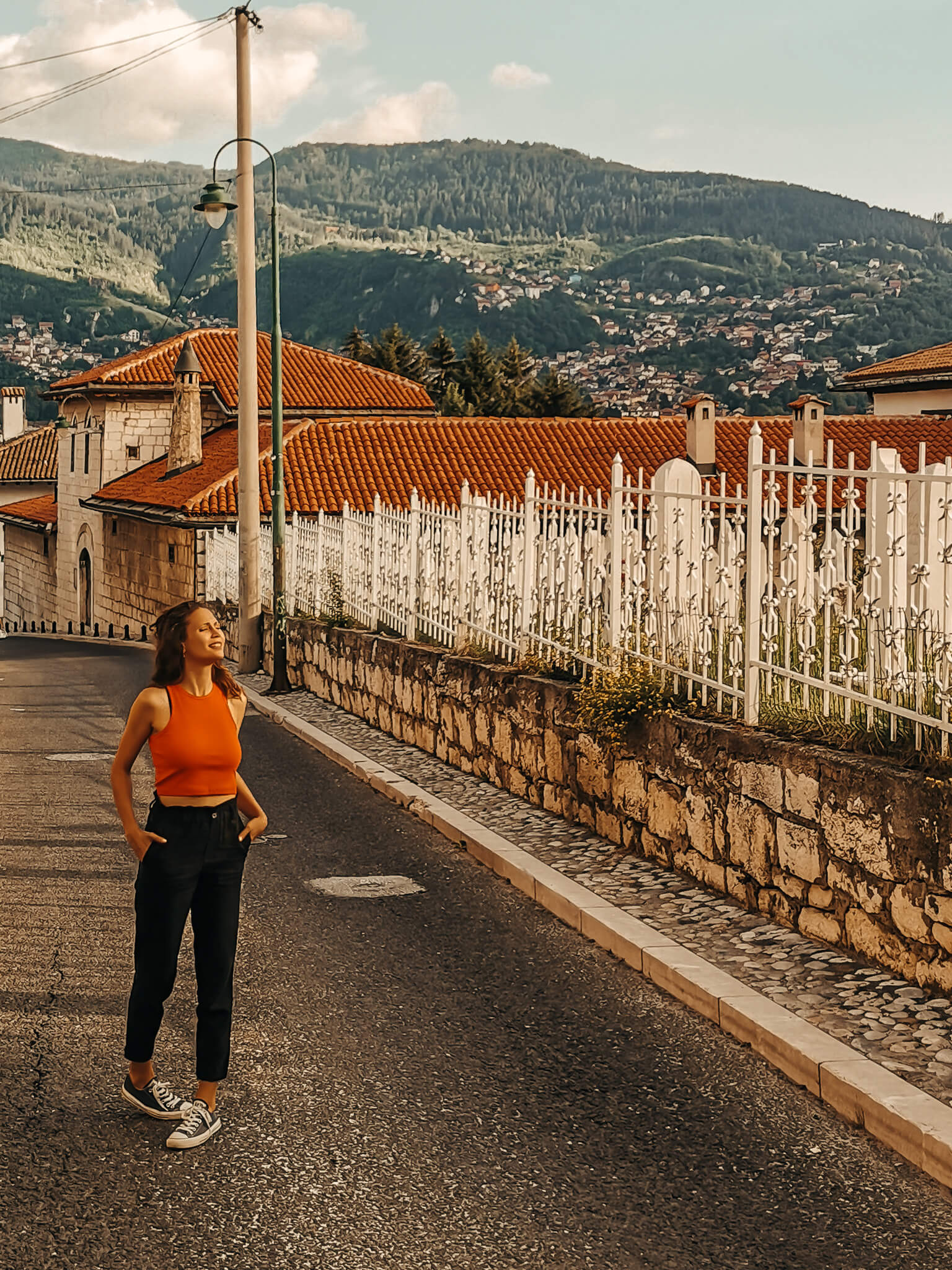
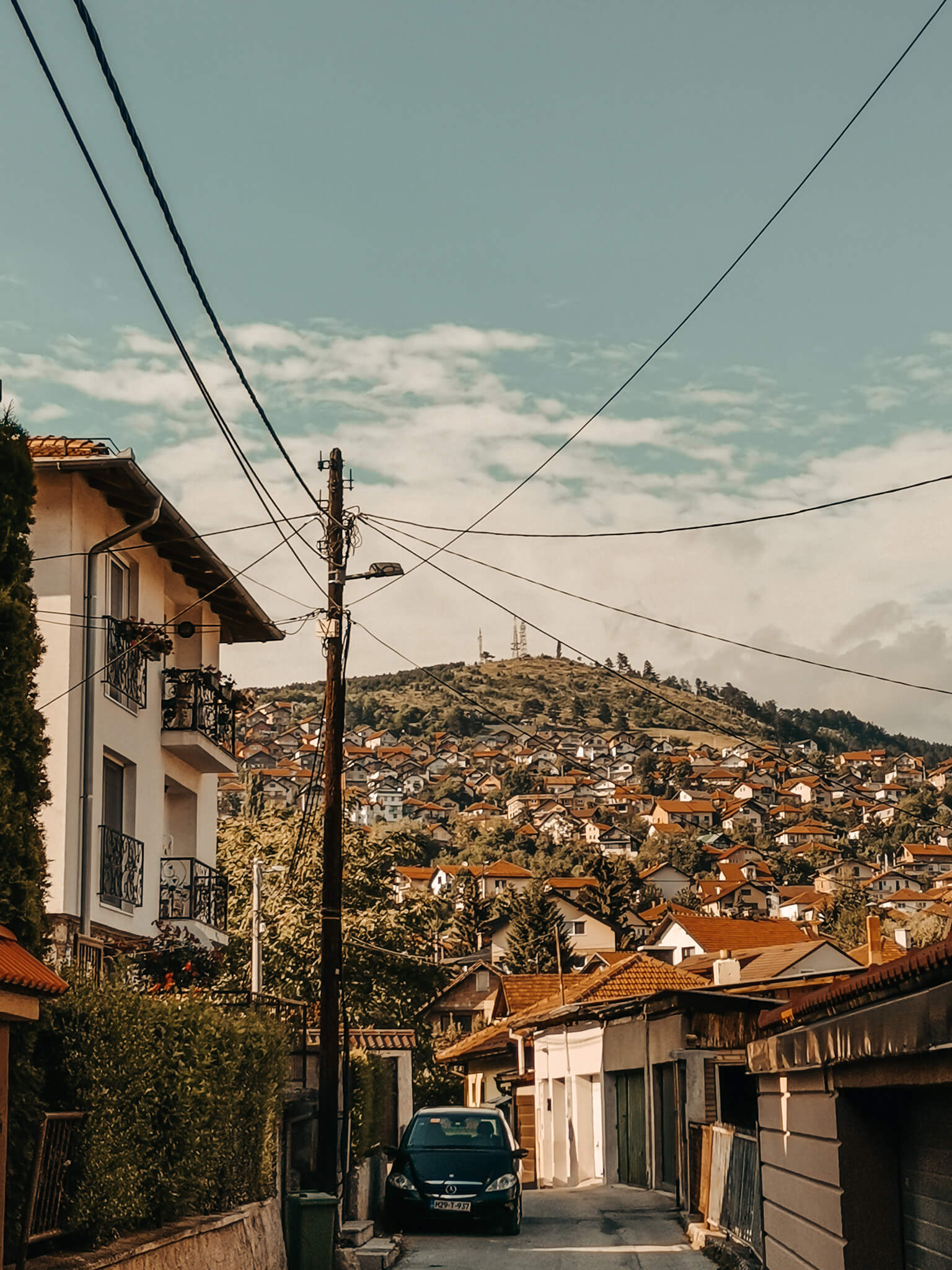
It’s easy to fall in love with Bosnia and Herzegovina, a country so warm and welcoming. Where everything seems to happen by accident and at the same time feels as if it’s destined to be. Life is easy – and heavy at once. But just like that you can fall out of love again, because Bosnian exceeds all expectations – the good, the bad, the ugly.
There is magic, secrets, some well-hidden, some openly out there – and the more you explore, learn, see the more you realize how much this country can actually give you if you open up to it. If you let it change your perspective, your outlook on life.
You cannot come to Bosnia without being shocked, maybe angry a bit, and humbled. But you can take those feelings with you when you leave – tell people about this place in the middle of Europe, come back, visit and change your own life. Maybe that’s Bosnia’s true secret.